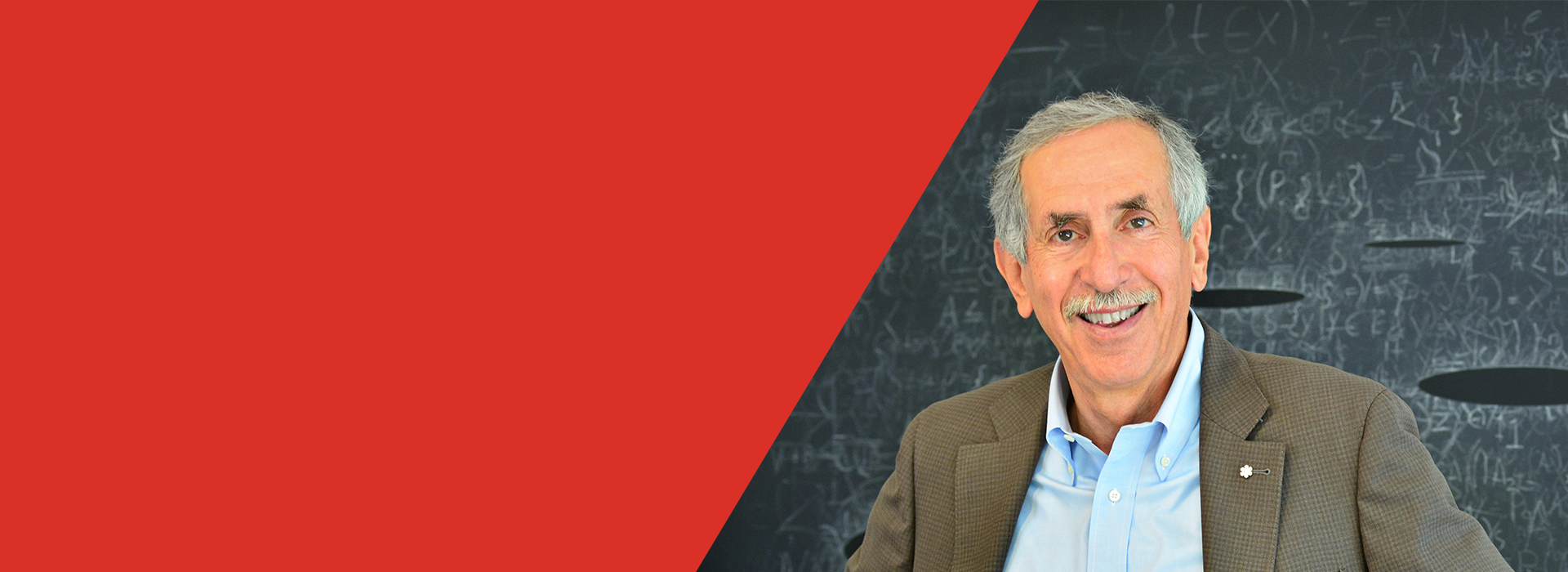By: Alan Bernstein
30 Oct, 2018

Earlier this month I was in Montreal for the announcement of the generous donation from the RBC Foundation of $1 million and to celebrate RBC’s announcement of the opening of the Montreal office of Borealis AI. RBC’s donation will support CIFAR’s research into artificial intelligence, including support for our work on AI & Society.
RBC has been a supporter of CIFAR for 31 years. It’s a remarkable example of corporate philanthropy, and a tribute to RBC’s appreciation of the research CIFAR has been supporting since our very beginning.
Just a day before the Montreal event, the Royal Swedish Academy of Sciences announced that the 2018 Nobel Prize in Economics would be shared by Paul Romer. Romer, a professor at the New York University Stern School of Business, is a former fellow in CIFAR’s Economic Growth and Policy program, a forerunner to our current Institutions, Organizations & Growth program. He was the RBC Fellow for two years.
While he was the RBC Fellow at CIFAR, Romer worked with CIFAR colleagues on endogenous growth. This theory, which examines how knowledge and ideas lead to productivity gains and explores what conditions are needed to allow them to thrive, was the work for which he was awarded the Nobel Prize. His work is a great example of CIFAR’s commitment to catalyze the creation of new knowledge that has the potential to change the world.
With Romer’s Nobel, CIFAR’s roster of fellows and advisors who are or have been associated with us, now includes 19 Nobel laureates. This record of excellence at the highest international level is another demonstration of our commitment to the unique aspect of the CIFAR model and mission.
That model is founded on two disarmingly simple ideas: first, fundamental research is essential to improving the human condition. And second, the best way to advance knowledge and to address the complex questions and challenges facing humanity is to bring together the world’s best minds.
CIFAR’s commitment to excellence at the highest international levels extends to all areas of the research that we support. Our 12 programs cover a wide range of research areas, from social science to quantum physics, and our 19 Nobel Laureates come from the fields of chemistry, economics, physics, and physiology and medicine.
This fall is an important time at CIFAR. We are conducting external reviews of six of our 12 programs and conducting external reviews of 12 proposals coming out of our Second Global Call for Ideas. As I write this, we have just finished a weekend reviewing our program in Institutions, Organizations & Growth (IOG). At one point, there were two Nobel laureates in the room, Sir Angus Deaton, Chair of the Review Team, and Roger Myerson, a member of the Advisory Committee for IOG. In addition there was Torsten Persson, co-director of the IOG, who sits on the Nobel Economics Prize Committee. Also present were, in my estimation, at least three potential future Nobel laureates. As a scientist, I couldn’t have imagined a better way to spend my weekend!